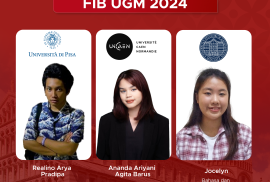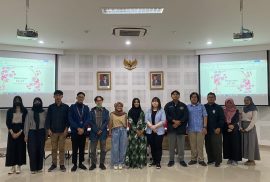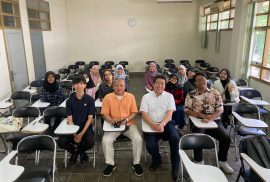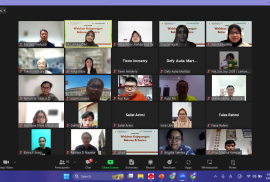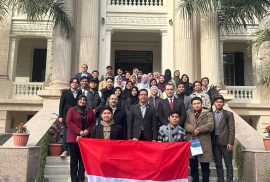Erlangga Satrio Bintoro was overwhelmed with joy when he heard the announcement that he had graduated from IISMA 2024. It was a moment he had been looking forward to with great expectation and hard work. His first step was to tell his family, mentors, and closest friends. For him, sharing his happiness was the best way to start his new journey after passing such a crucial exam.
Since the beginning of the IISMA enrollment process, Erlangga Satrio Bintoro, a Cultural Anthropology, has prepared himself diligently. From conducting in-depth research about the university and country, to preparing essays and practicing interviews. For him, thorough preparation was the key to success in the exam.
In choosing a destination country and university, Erlangga strongly considers his interests and how it can help him achieve his future goals. For him, choosing according to his passion is the right step because it will be reflected in the essay and interview, which are important parts of the IISMA selection.
Erlangga would like to share his tips with his seniors in order to pass the IISMA selection successfully. According to him, prepare yourself as well as possible but don’t overdo it. Choose a country and university that matches your passion, because it will be reflected in the essay and interview.
Erlangga’s journey to success in the IISMA was also helped by the IISMA Preparation Course organized by the UGM Faculty of Arts Language Center. Through the course, Erlangga got a rough idea of how essays should be written, how interviews should go, and what is expected of participants by IISMA. The course contributed greatly to Erlangga’s success in his journey to become an IISMA 2024 awardee.

